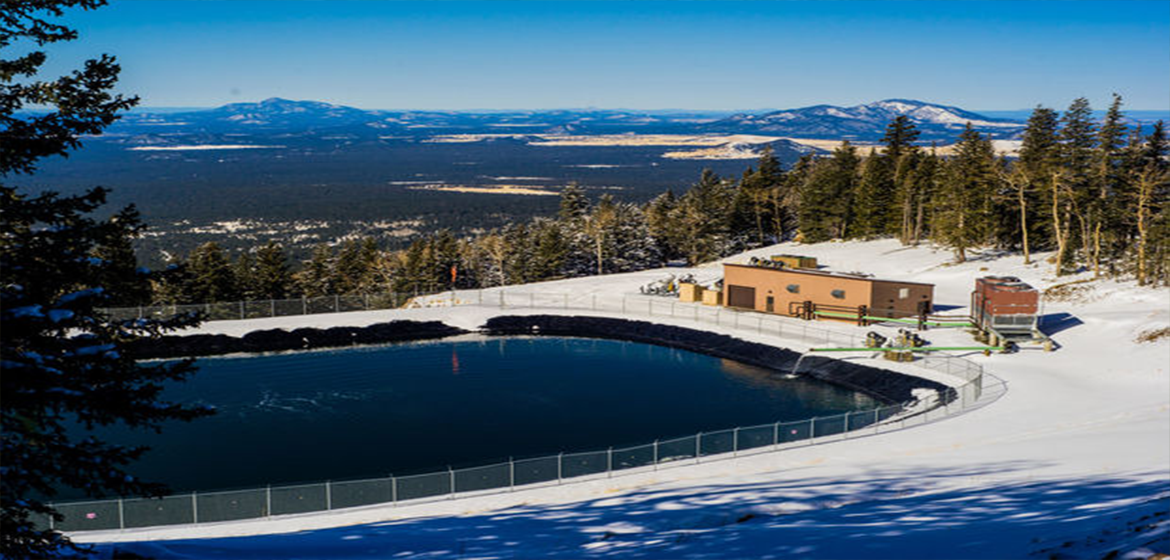By Alex Rapp
A lawsuit filed by the Native Nations of Flagstaff over a decade ago, regarding the use of reclaimed water at Arizona Snowbowl, has been brought back into the spotlight. A new lawsuit filed by the Hopi Tribe in 2010 against the City of Flagstaff alleges that the selling of reclaimed water to Snowbowl violates the religious uses for Hopi Tribe, the Navajo Nation, Havasupai Tribe, White Mountain Apache Nation and Yavapai-Apache Nation.
The first lawsuit was filed by the Navajo Nation in 2005, and the more recent lawsuit filed by the Hopi Tribe was dismissed by the Coconino County Supreme Court. But the Arizona Court of Appeals granted the appeal on the public nuisance claim.
The Arizona Court of Appeals ruled in favor of the Hopi Tribe on their appeal about whether or not the use of reclaimed water is a public nuisance. To be a public nuisance, “it must allege both an interference with a right common to the public and a special injury different in kind from that of the public,” according to the court documents.
The tribe will be able to make their case to a judge and jury. According to the Arizona Court of Appeals, the initial decision of the Coconino County Superior Court to dismiss the tribe’s complaint has been reversed because the Court of Appeals found reason for their claim of public nuisance, and the case will now be remanded for further action.
Although there have been recent movements with the lawsuit, the original lawsuit was filed in 2005 when the Navajo Nation, as the chief plaintiff in the lawsuit, filed against the United States Forest Services.
The federal government approved a proposal in 2005 for the construction of Snowbowl on a portion of The San Francisco Peaks. The Peaks are considered sacred by both the Hopi Tribe and the Navajo Nation. They argue that the use of reclaimed water violates their religious sanctity of the mountain.
Part of the proposal for Snowbowl was pumping 1.5 million gallons of reclaimed water per day to the mountain in order to make artificial snow for the ski resort.
In 2012, Snowbowl started using reclaimed water.
The making of artificial snow came because the lack of snowfall and occasional warmer winters on the mountain for the past several years. In order to keep Snowbowl’s business alive, the company said man-made snow was necessary.
In attempt to put a stop to this, 13 Native American tribes and nations filed a lawsuit against the United States Forest Service on multiple claims in 2005.
The Native Americans’ claim stated that the 0.0001 percent of human waste found in the artificial snow was a danger to the sacred land and that it violated the Religious Freedom Restoration Act of 1993, the National Environmental Policy Act of 1969 and the National Historic Preservation Act of 1966.
The case eventually was brought to the 9th Circuit Court of Appeals but ended there in 2009. The final ruling was that United States Forest Service did not violate any rules of religious freedom.
But one year later, a new lawsuit was filed against the City of Flagstaff by the Hopi Tribe. This time, the tribe sued the City of Flagstaff for selling reclaimed water to Snowbowl.
The Hopi Tribe claims that, apart from the damage the water could do to the mountain and the people on the mountain, it is violating the tribe’s religion and the sacred role the mountain plays in that religion.
The Hopi Tribe, along with other native groups such as the Navajo Nation, Havasupai Tribe and Yavapai-Apache Nation, uses the land as a holy site where rituals are held. The groups use water in their mountain ceremonies, and the reclaimed water — used by Snowbowl — interferes with their ceremonial sites.
“It’s conflicting between recreation and religion. If you know it’s affecting someone’s religion, is it appropriate?” said applied indigenous studies professor Gavin Healey.
Healey has an extensive knowledge in American-Indian studies.
Because of the claim that the water does more than just affect the general public, the Hopi Tribe has a case different from the one made by the Navajo Nation more than a decade ago.
Although the lawsuit has been in the works since 2010, the Hopi Tribe offered to settle the case with the city if a filter to help with the reclaimed water was built.
Although this idea was sparked during the process of the lawsuit, the negotiations were dropped and the lawsuit remains.
If the Hopi Tribe wins the lawsuit against the City of Flagstaff, there could be serious implications for Snowbowl.
Snowbowl did not respond for a request to comment.
Source:
Related to SDG 10: Reduced inequalities and SDG 3: Good health and well-being



